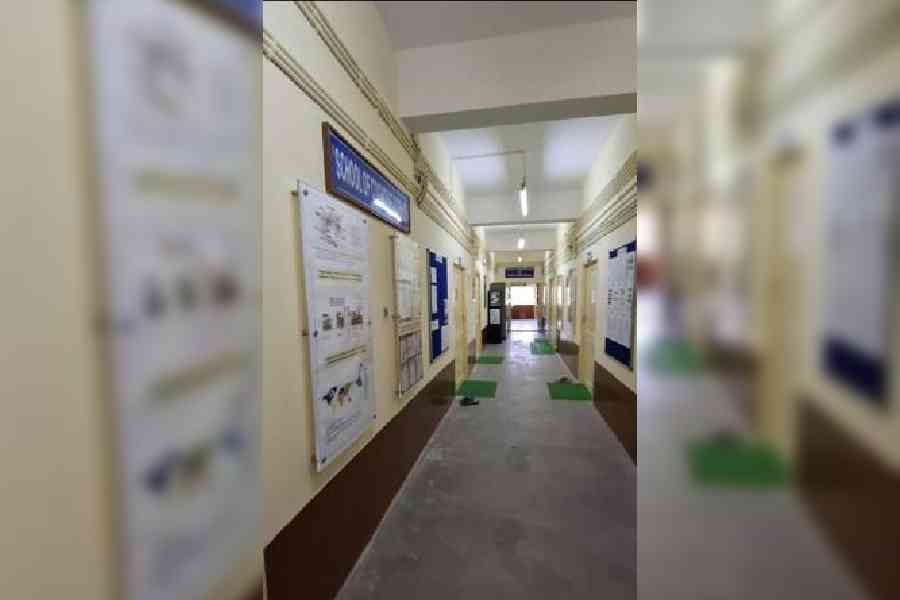A school of Jadavpur University that works to empower visually impaired students has got a ₹44 lakh grant.
The School of Cognitive Science plans to spend the fund on a project to develop English language proficiency among visually challenged students with the help of artificial intelligence.
The Higher Education Funding Agency (HEFA), which is a wing of the Union education ministry, has provided the grant.
Amrita Basu, director of the school, said visually impaired students often suffer from a lack of proficiency in English because their medium of instruction is mostly Bengali at the school level.
“As they have cognitive issues, they anyway have to make an extra effort to grasp any language. It has also been observed that many of the visually impaired students struggle with English-speaking skills because of the lack of specialised tools like screen readers, audio-based language learning platforms, and Braille texts in English at the school level or college and university levels,” said Amrita.
“Without proficiency in English, particularly communication skills, one cannot think of getting through an interview or group discussion to secure a job. We are trying to help them bridge the gap.”
Anupam Basu, former professor of computer science and engineering at IIT Kharagpur and now the Raja Ramanna Chair professor at Jadavpur University, is an adviser to the project.
Anupam said traditional teaching methods in higher education often overlook the needs of visually impaired learners, resulting in lower proficiency levels compared to their peers who are not visually impaired.
“Although some institutions and NGOs are introducing accessible learning solutions to improve English language skills among this population, widespread adoption is still needed,” said Anupam, a former director of NIT Durgapur.
As part of the project, JU is developing an AI-based assistive tool designed specifically to teach spoken English to visually impaired individuals.
“Remember someone who is congenitally visually impaired may not be encountering the same level of difficulty as someone who lost his sight because of an accident. So, we are trying to develop a personalised assistive tool for them. We have been set a three-year deadline to come up with our findings,” said Amrita, who has been heading the school since 2018.
The project will incorporate behavioural and EEG (Electroencephalogram) data to analyse and optimise learning outcomes, addressing cognitive flexibility, capacity and cognitive load management throughout the learning process.
“We have our own EEG lab. It will be an evidence-based study,” the director told Metro.
Anupam said they were focusing on improving both the communicative and cognitive skills of visually challenged individuals.
“We are trying to tailor the tool to each student’s individual cognitive capacity, learning gaps, and cognitive flexibility, ensuring a customised learning experience. We will leverage AI and advanced neuro-feedback technologies to boost language acquisition and communication proficiency, leading to improved socio-cognitive skills,” he said.
The aim is to equip visually impaired individuals with the language and
cognitive skills required for employment in corporate and other professional settings.
The skill development will include exercises that enhance memory, problem-solving, critical thinking, and communication skills.
Dipankar Sanyal, a professor of JU’s mechanical engineering department who was part of the screening committee that shortlisted the project and sent it to HEFA last year, said JU had always been known for its inclusive approach.
“Be it revamping the accessible library or laying a tactile pathway, JU has always been known for acting for the cause of the visually impaired students,” said Sanyal.
Jishua Debnath, a visually impaired student who is pursuing PhD in JU, said: “Such projects should go a long way in mainstreaming differently-abled students.”










